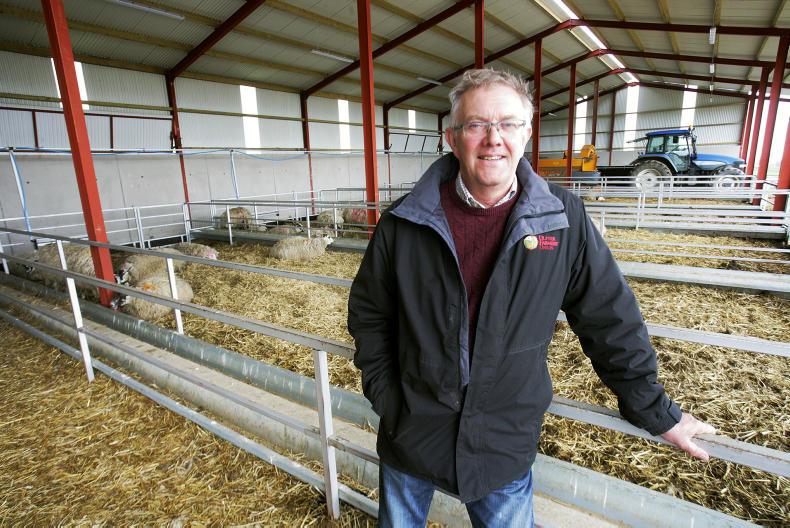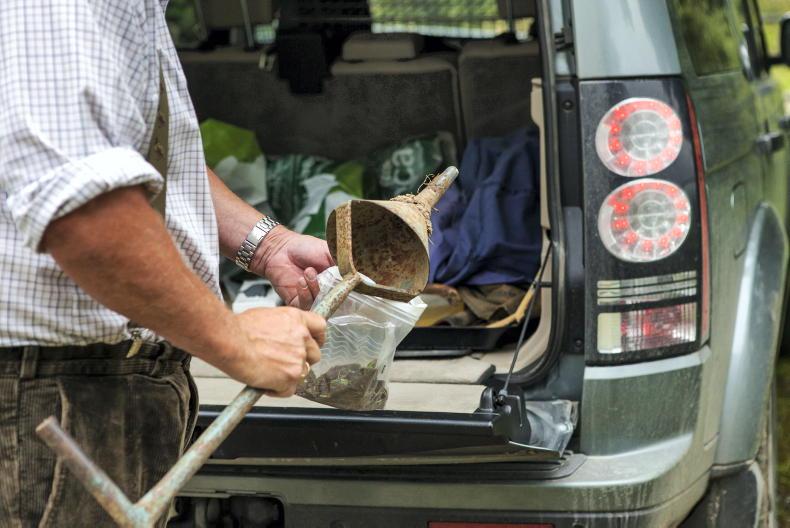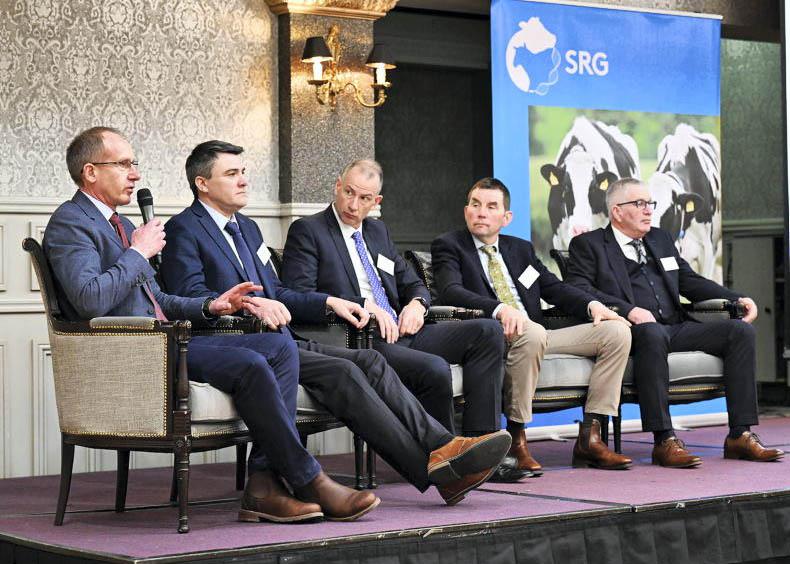At some stage over Ivor Ferguson’s tenure as president of the Ulster Farmers’ Union, it is likely that the UK will drop out of the EU.
Whatever happens, it will herald a period of significant change for local farmers, so there is a danger that everything else gets pushed to one side.
“People expect me to take on Brexit. I know it is important, but there is a lot around the subject that we can do little about. There are some very big issues at home, for example, ammonia and bovine TB, and the whole future of the family farm in NI. That’s where my focus will lie,” Ivor Ferguson told the Irish Farmers Journal.
Speaking to Ferguson, it is clear that he will be a diligent and hard-working president over the next two years, who wants to see productive farmers survive and prosper into the future. He has a quiet determination, and is someone not afraid to say what he thinks.
However, when first elected as deputy president four years ago, Ferguson was somewhat of an unknown outside of the pig sector. A first-generation farmer from outside Markethill, he went into pigs as he didn’t have a large block of land, and built the farm up to a herd of around 300 sows.
He now farms 115 acres, with a 300-ewe sheep flock, and plans in place to build a 16,000 bird layer unit. In January 2016, he decided to get out of pigs.
“It was a difficult decision, but we had to think of the future, and succession on the farm. I have three daughters and a son. One of my daughters, who is a vet, is interested in taking on the farm part-time. The pig industry has been very good to me, and I would do it all again if I had the choice,” he said.
For now, he is concentrating on the immediate task at hand to represent the views of local farmers. However, the lack of a functioning executive at Stormont is clearly a point of much frustration. “I am very disappointed in our local government,” he said.
It has left the UFU to lobby civil servants directly, but without political masters, decision making has been slow and often, non-existent.
That has led to problems such as the recent standoff over ammonia emissions, with up to 100 applications for new livestock housing stuck in planning, while the NI Environment Agency (NIEA), which is part of DAERA, decided what to do next.
Despite denials from the Department, Ferguson is convinced that civil servants changed the rules around how it considers the ammonia issue without telling anyone, including farmers. “The fact they deny that, it is most annoying. We have been trying our best to work with the NIEA. But unfortunately it seems there are a few guys in there who are anti-farming,” said Ferguson.
He acknowledges that farmers will have to play their part in a long-term strategy to reduce ammonia levels, whether that is by using new technology, low-emission spreading techniques or by following best practice advice. But he believes that the answer to ammonia does not lie in stopping farmers building new sheds. It is a principle he won’t accept, now or in the future.
Bovine TB
On the difficult issue of bovine TB, Ferguson is frustrated that another year seems to be passing without any meaningful action to tackle the problem of TB in wildlife.
However, he is keen to work with DAERA to try to move the issue forward, and accepts that the estimated £40m cost to the taxpayer this year is not sustainable. A recent DAERA consultation proposed a cap on compensation for reactor animals, and that farmers should pay for an annual herd test. In response, the union has suggested a £3 per head levy on cattle to help pay for wildlife intervention work. “I believe ours is a good plan. We want to be part of the solution,” said Ferguson.
Brexit
When it comes to Brexit, his position is clear in that he would like the UK to be in some form of customs union or partnership with the EU into the future, that would allow free trade and free access to all EU member states. He isn’t a fan of some of the right-wing Tories pushing for a complete cut to ties with Europe.
“Their agenda is to bring in cheap food. That is our biggest concern,” he said.
Then there is also the Defra secretary Michael Gove telling farmers that they must raise various standards after Brexit. “We have to be competitive in the marketplace. Our job is to produce food. I am a great believer in the Red Tractor standard that currently exists. Why would the Government want to move us on to any higher standard, yet leave the door open for cheap food imports? We don’t want to see a two-tier food system in the retailers,” said Ferguson.
While the union is probably limited in the extent it can shape the political debate at Westminster, it should have more influence over what might replace the current system of support going to farmers.
According to Ferguson, his membership is clear that they want the current system of area-based payments to change. However, he would still like to see a payment per hectare retained as some form of farm resilience payment, but at a level that would not incentivise a landlord to retain their land, claim the money, and grow grass for sale.
A top-up should be paid to farmers on marginal and hill land, and all other funds targeted at active and productive farmers.
But whatever happens, Ferguson recognises that post-Brexit policy could leave a number of vulnerable sectors in NI, particularly lowland beef and sheep, and also arable production. “I am concerned about the family farm in NI, and keeping that farm profitable. It is so different to England. But we still have devolved power in NI, and hopefully that will be a big help to us,” he said.
Supply chain
During his tenure as deputy president, Ferguson was often quoted on the issue of fairness in the supply chain. He is critical of the main British supermarkets and the continual drive to the bottom on prices.
He has also campaigned hard over the last few years on the unfairness that NI farmers felt when producing to the same Red Tractor standard, but taking lower prices than counterparts in Britain.
However, across many of the sectors, that differential is virtually gone at present.
Ivor Ferguson probably isn’t the type of person to claim credit for that, but it did highlight one thing about him – if he doesn’t like something, he will be pretty persistent until it changes.










SHARING OPTIONS